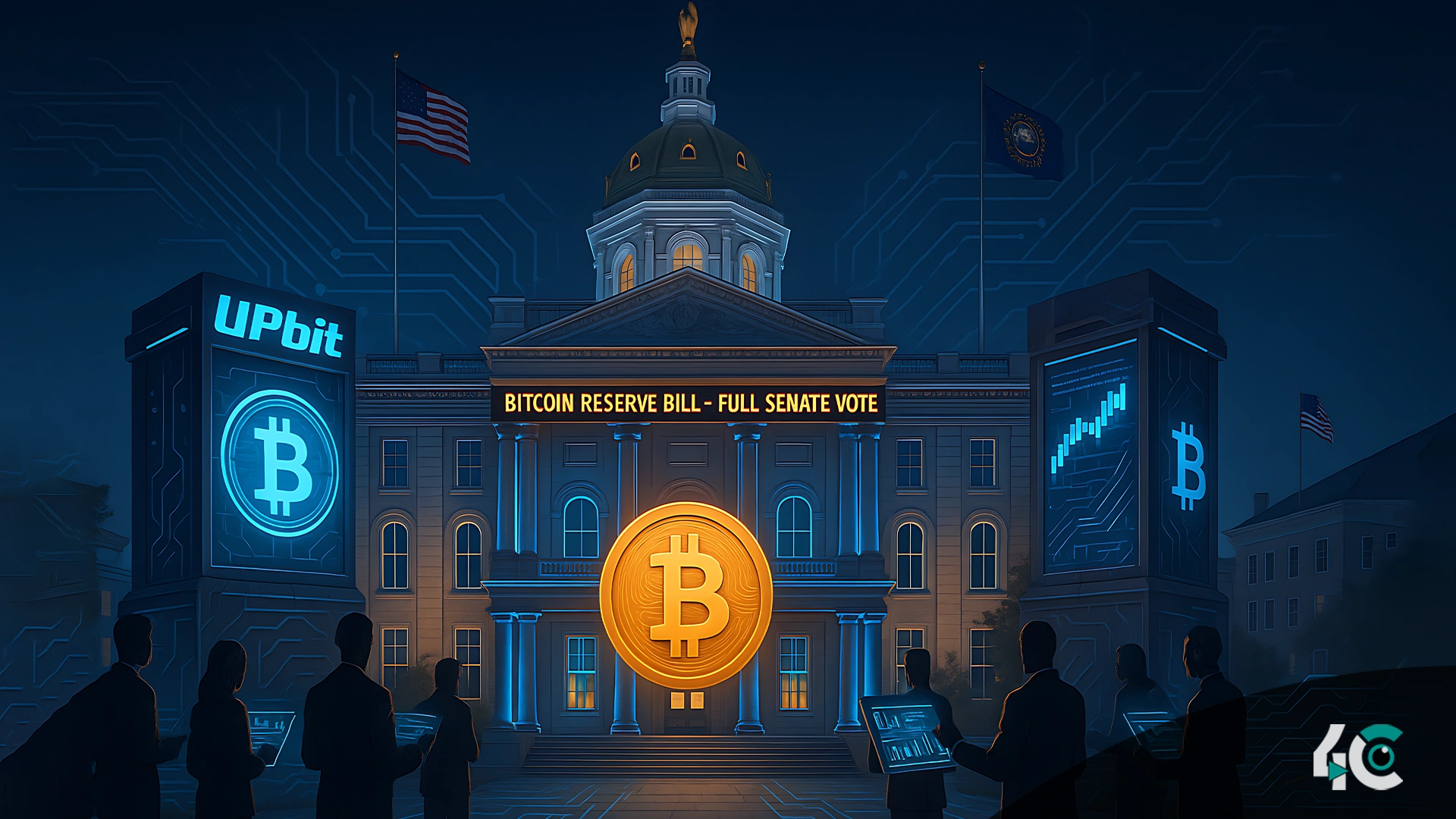Bitcoin investment bill gains traction in New Hampshire, showcasing growing legislative support for crypto integration in state finance.
A Step Toward Crypto Adoption in State Finances
New Hampshire moves closer to being a state that will integrate cryptocurrency into its financial strategy. House Bill 302 is one step closer to becoming law after passing a second Senate committee with a 4-1 vote. The legislation would allow the state to invest up to 10% of its general funds in Bitcoin and precious metals. The legislation has now moved to the Senate floor, bringing it closer to becoming a law.
The bill has been moving forward in the legislature since January. Earlier this month, the measure passed the state House by a narrow 192–179 vote, reflecting support and skepticism among lawmakers. If the Senate votes in the bill’s favor, it will go to the governor for signing.
The bill will restrict investment only and only in digital currencies that will have a market cap of over $500 billion, which currently only Bitcoin meets. Advocates maintain that the action could reap substantial financial rewards for the state, which would provide inflation protection and broaden New Hampshire’s asset allocation beyond traditional assets.
However, critics have voiced concerns about the proposal. Democrat Terry Sphar noted that the bill is redundant because the state treasurer can already do that, according to Sphar. He also cautioned that strict regulations could jeopardize the safety of digital reserves, posing possible threats to the state.
Republican Representative Jordan Ulery said the bill can also bring a lot of money to the state by diversifying its holdings. He stressed the need to look at different ways to make money in New Hampshire.
Broader Blockchain Initiatives in New Hampshire
Besides HB 302, New Hampshire is looking into a pair of other blockchain bills.
The bill wants to create clear regulations for blockchain and help settle disputes in the electronic asset area.
The second bill will be about stablecoins and the tokenization of real-world assets, which aims to make New Hampshire a leader in blockchain.
New Hampshire’s blockchain legislation is part of a growing trend to regulate and protect blockchain
A Turning Point for State-Level Crypto Policies?
With states such as Arizona and Florida implementing their own measures, New Hampshire’s efforts on HB 302 could potentially mark a significant shift. New Hampshire is setting a precedent among states by integrating Bitcoin into its financial system, potentially impacting how governments engage with Bitcoin.
Although the bill has an uncertain future, its advancement shows that states are looking at new ways to add digital assets to their economy. Whether HB 302 succeeds or fails, New Hampshire’s efforts demonstrate the increasing use of cryptocurrency in financial systems.
Conclusion
House Bill 302 in New Hampshire aims to allow the state to use cryptocurrency as a legal asset for investment purposes. Lawmakers want to diversify the state’s holdings and potentially achieve significant financial returns by allowing Bitcoin and precious metals into the state’s portfolio.
But the discussion around the bill shows challenges in balancing creativity with risk management. As the bill goes ahead, everyone is watching New Hampshire to see if it creates the framework for more states to do the same, and redefine the meeting place of government and digital assets.



































